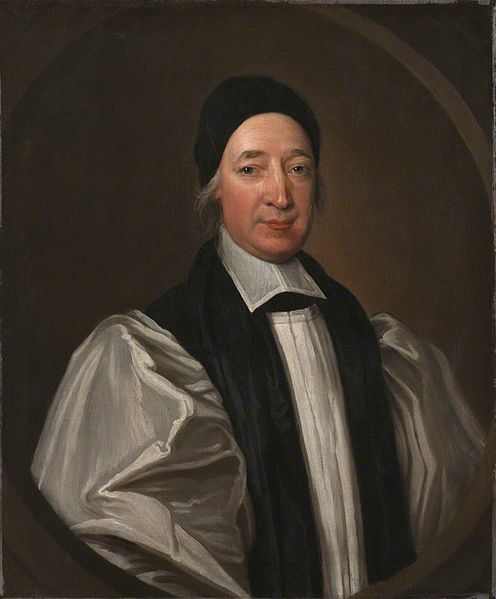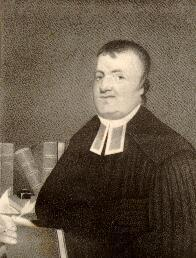Public domain poets: Thomas Ken and Jeremy Belknap - A random glance at history
Public domain poetry from Thomas Ken and Jeremy Belknap provided the lyrics that were incorporated into Christopher M. Palmer's original choral composition, Assurance of Grace. This post will summarize what the Internet has to say about the history of the lyrics and the lyricists.
Introduction
If you follow my son, you have likely already seen this video of his composition, Assurance of Grace, as performed in 2018 by the Youth Choir from the Westminster Presbyterian Church of West Chester, PA. If not, feel free to enjoy listening to the music while you read the remainder of this post. And of course, go follow him. ; -)
Link, in case your client (partiko) doesn't show the embed:
Assurance of Grace, May 6th, Final 2018 Performance - Behind Piano
Christopher has written a number of compositions now by mining lyrics from the public domain and setting a melody to them, and then using his mystical music theory techniques to add additional voices and establish harmonies. As he likes to point out, I am a musical "muggle," so I can't say much about the music, except that I enjoy listening to it, and I'm very lucky to be one of the first people in the world to get the opportunity to hear his creations, even while the work is still in progress. But I can surf Google with the best of 'em, so one of the things I like to do when he's working on these compositions is to learn about the poets and lyricists that he discovers.
Since I've done all the web searches anyway, I thought this information might fill an interesting series of SteemBlog posts. Unless I'm forgetting other(s), Assurance of Grace was the first formal performance of any of the compositions that he has written with public domain lyrics. It was originally written as a piano piece called In Memoriam, in honor of Bianca Roberson, a 2017 graduate from his high school who was killed in a senseless road rage shooting. When the church's youth choir director heard the piano piece, he asked if Christopher could rewrite it with lyrics and appropriate voices for the church youth choir, and thus Assurance of Grace was born.
Christopher informs me that the music is set in an ABA structure, with the lyrics of the A section coming from a church text that is commonly known as The Doxology (It was Christopher's voice instructor who noticed how perfectly the words to the Doxology fit the melody). The lyrics of the B section, which is a solo, came from an adaptation of Psalm XVI verse. 5 in Jeremy Belknap's Sacred poetry. Consisting of psalms and hymns, adapted to Christian devotion, in public and private..
Of course, this still leaves the question of where The Doxology came from, and I was able to track that back to a verse of Thomas Ken's Morning Hymn. Various publications list different collections of verses for that, so I'm not sure if it was really the final verse or not, but it seems that it probably was.
In the following sections, I'll tell you a bit about these two lyricists.

Thomas Ken
Thomas Ken lived in England from 1637 to 1711. According to Britannica, he was ordained into the clergy in 1661 and it seems that he also had a political rebellious streak. As a bishop, he opposed two of King James' pro-Roman Catholic Declarations of Indulgence, which led to Ken's imprisonment in the Tower of London and trial for sedition. The poemhunter web site tells us that the imprisonment lasted for several weeks in June of 1688, until Ken was acquitted. After that, he went on to also oppose William and Mary after they took power and James was forced to flee from the so-called Glorious Revolution. For his opposition to the new monarchs, Ken was forced into retirement for the last twenty or so years of his life.
To this information, wikipedia adds that Ken was educated at Winchester College; Hart Hall, Oxford; and the New College, Oxford. He earned b.a. and m.a degrees between 1656 and 1664.
wikipedia also notes that Ken wrote most of his famous hymns during his retirement years, and that he was a hymn-writer with few equals among his English counterparts. Certainly, 308 years after his death, the Doxology is still one of the best known texts in the Christian church.
Ken's lyrics that were incorporated into Assurance of Grace are:
Praise God, from whom all blessings flow;
Praise Him, all creatures here below;
Praise Him above, ye heavenly host;
Praise Father, Son, and Holy Ghost.

Jeremy Belknap
Perhaps because he lived later, the Internet seems to know a great deal more about Jeremy Belknap's life, including the fact that he had letters to and from the American Revolutionary war hero, and first American President, George Washington. There is a great deal to sift through, but hopefully this section will capture some of the highlights of Belknap's life.
According to everipedia, Belknap lived from 1744 through 1798, residing in New Hampshire and Massachusetts. He graduated from Harvard and served as a minister in the Congregationalist and Unitarian churches. He also served as a chaplain in the Revolutionary war and was named by Alexis de Tocqueville as "American's best native historian".
Belknap's own writings show that he attended the Massachusetts constitutional ratification debates in 1788 and was working for the abolition of slavery from 1788 through 1792. This 1786 letter to Moses Brown seems to capture his views on slavery and abolition in a couple of sentences:
I wish the time may come when the owner and master of every vessel
employed in this sanguinary trade shall be considered as a felon ; as
guilty of a cruel, unprovoked, offensive war against the innocent, and
punished as a murderer, whom vengeance suffereth not to live.
But until this desirable change can be effected, I would recommend
one method as a means of gradually extirpating the evil, and that is,
making it a part of education to instil into the minds of children
the principles of universal liberty, and an abhorrence of slavery.
This seems to be an early emergence of the idea that politics is downstream from culture.
Belknap's writings also indicate that he was instrumental in formation of a Massachusetts Historical Society, creating "Plan of an Antiquarian Society" in 1790 which became a sort-of blueprint. Formed in 1791, the Massachusetts Historical Society still exists today.
With some adaptation, here are Belknap's lyrics that fill in the B section:
Thou shalt the paths of life display,
Which to thy presence lead;
Where pleasures dwell without allay,
And joys which never fade.

Conclusion
I have to say that having a musician son in the household offers many unexpected benefits to the parent. One is that it creates an interesting and entertaining way to learn about history. I have learned quite a bit about history by talking to him about the composers that he studies in music theory lessons and by reading about the public domain poets and lyricists that he discovers. I hope that you also find that this is an entertaining way to rediscover a bit of forgotten history.

Thank you for your time and attention.
As a general rule, I up-vote comments that demonstrate "proof of reading".
Steve Palmer is an IT professional with three decades of professional experience in data communications and information systems. He holds a bachelor's degree in mathematics, a master's degree in computer science, and a master's degree in information systems and technology management. He has been awarded 3 US patents.
Steve is also a co-founder of the Steem's Best Classical Music Facebook page, and the @classical-music steemit curation account. Please join the discord for #classical-music, here - https://discord.gg/ppVmmgt.





Resteemed, your post will appear in the next curation with a SBD/STEEM share for you!
Your post has been supported and upvoted from the Classical Music community on Steemit as it appears to be of interest to our community.
If you enjoy our support of the #classical-music community, please consider a small upvote to help grow the support account!
You can find details about us below.

The classical music community at #classical-music and Discord.
Follow our community accounts @classical-music and @classical-radio.
Follow our curation trail (classical-radio) at SteemAuto or help us out with a delegation!
Great post you have there and a great way to learn a lot. I really enjoyed every bit of piece in there. You are really great at what you do and I wait to read more from you soon.
Posted using Partiko Android
Thanks! I'm glad you enjoyed it.
You are welcome
Posted using Partiko Android
Hi remlaps,
Visit curiesteem.com or join the Curie Discord community to learn more.
This post was shared in the Curation Collective Discord community for curators, and upvoted and resteemed by the @c-squared community account after manual review.
@c-squared runs a community witness. Please consider using one of your witness votes on us here
Nice article 👍👏
Posted using Partiko iOS